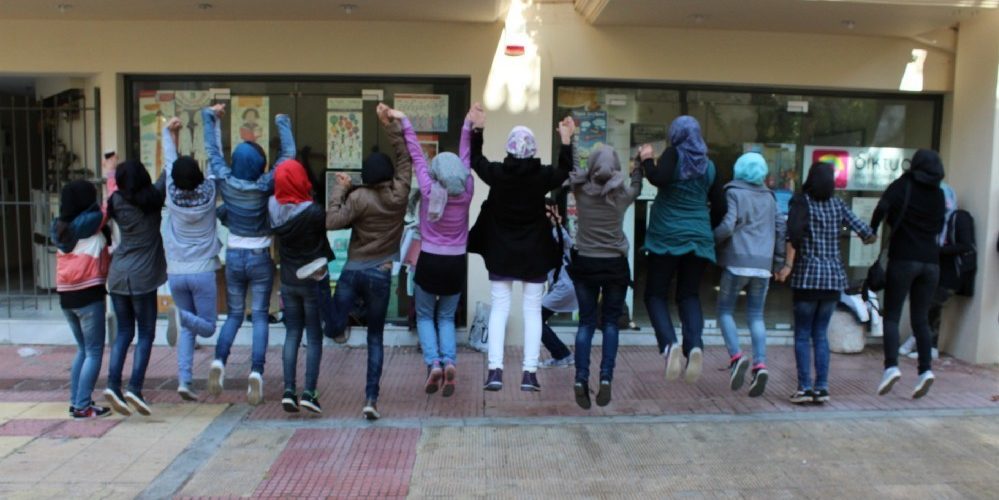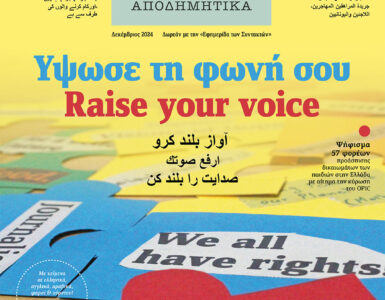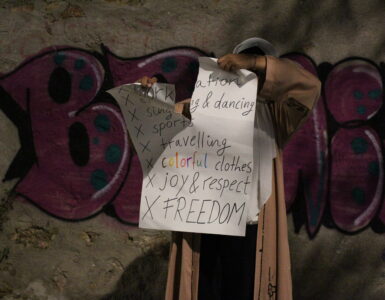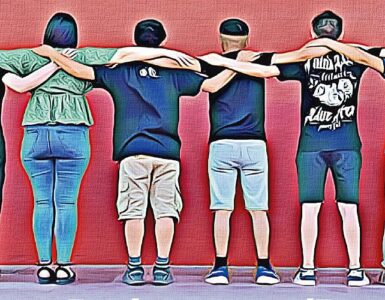This newspaper is the result of months of hard work and efforts made by fifteen Afghan girls, who have been living in the Schisto refugee camp for the last one year.
The newspaper might look interesting to some of you, sad to some of you, or just entertaining to some others, but for us, it is the most valuable thing we have now. It is full of words from our hearts, friendly complaints and our daily life in the camp. We write about our journey, our difficult days, our lonely nights, the hardships and the unsettled life of Afghans.
Our team participates in weekly meetings outside the camp. We meet every Saturday at the Network for Children’s Rights. Usually approximately fifteen girls participate in the meetings.
Some of the girls stopped coming during this period. They decided to take the risk again and continue their journey towards northern Europe.
We had sweet and bitter days. The bitter days were the days that we talked about our situation and our friends who left and the sweet days were when we learned more about how to deal with our new life and we felt that we were getting stronger day by day.
At one point, when it was taking too long to print our newspaper, we lost hope but we did not give up. Then we met with the Greek journalists and we visited the Efsyn newspaper premises where we met more journalists who encouraged us, shared their knowledge and experiences with us and we got motivated again.
Last but not least, we appreciate the hard work of the Network for Children’s Rights and all those who helped us to make this happen.
With the support of Save the Children, the Network for Children’s Rights is responsible for the implementation of programs such as the Child Friendly Space (CFS), the Child Protection Unit (CPU) and the Mother Baby Area (MBA) in the refugee camps of Schisto and Elliniko I & III, since April 2016.
The publication of the newspaper “Migratory Birds” is part of the Network for Children’s Rights program titled “Contact Points”, which aims to improve communication between refugees and the Greek community in order to build understanding and bridge the distance between the life inside the camps and the reality outside the camp. The program consists of a)the enhancement of dialogue inside the community of the camp and the preparation of communicating with the outside world, b) the information of the minors about the social and cultural European and Greek reality c) their socialization and their freedom of expression through their participation in meetings, talks and visits of a social, cultural, sporting and artistic nature including the participation of Greek adults and youth d) the initiation of integration processes through communication and acquaintance with their Greek peers and mutual interest groups such as sport organizations, recreational activities, language courses, newspaper publishing, etc.
As part of the “Contact Points” program, the Network’s youth worker in charge of teenage activities, Aristea Protonotariou, together with fifteen teenage girls from the Schisto camp created the newspaper “Migratory Birds”, while Viola Gjoka was responsible for organizing and coordinating the various supporting events.









Add comment